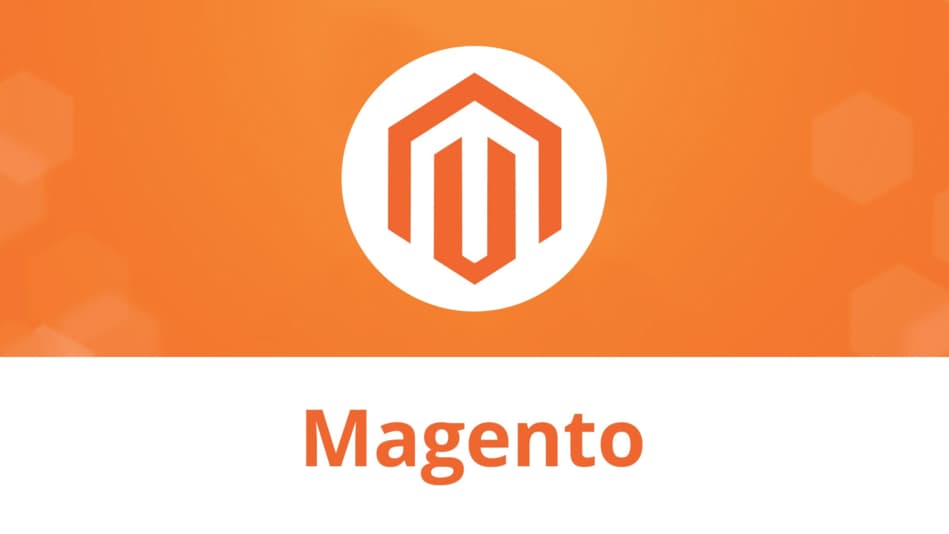10 Best Open Source Ecommerce Platforms In 2025

Selling online requires a solid and reliable e-commerce platform, and open-source systems provide, at a more budget-friendly price.
Open-source options give complete mastery over functionality, customization, and security on your website, a perfect scenario for developers, organizations, and businessmen who want a customized ecommerce environment.
Users who have source access and can contribute to it with the aid of a healthy support community find it ideal to craft scalable, functional online shops.
Whether you are an enterprise or a small business, the ideal platform can significantly impact performance and growth. In this article, we look at the best open source ecommerce platforms currently in the market.
What is an Open Source Ecommerce Platform?
An open-source ecommerce platform is a piece of software which provides users the ability to construct and operate online stores with direct access to the source code of the platform.
Unlike proprietary software, open-source platforms provide unlimited customization, so that businesses can customize and extend functionality based on their individual needs.
Open-source platforms are normally free to utilize, although users may have to pay for hosting, security, and extra features.
Open-source ecommerce platforms offer scalability, flexibility, and the backing of a dedicated community.
Well-known examples are Magento, WooCommerce, and PrestaShop, which empower businesses to own their retail online operations.
10 Best Open Source Ecommerce Platforms In 2025
10 MedusaJS

MedusaJS is a new, open-source ecommerce solution developed with a headless architecture, providing developers with complete control over the frontend and backend.
Customizable and scalable, MedusaJS enables companies to build custom shopping experiences with JavaScript and Node.js.
It has a modular design, allowing it to be easily extended or replaced with modules like payment, fulfillment, and product modules.
Medusa also handles multiple sales channels, regions, and currencies without any need for additional setup.
With its API-first philosophy and thriving developer ecosystem, MedusaJS is the perfect option for teams wanting to create fast, customizable, and future-proof ecommerce solutions.
9 Odoo

Odoo is an open-source ecommerce platform with a complete array of business software integrated with ecommerce functionality.
Most famous for being modular, Odoo enables enterprises to integrate more than just ecommerce, but other tools like inventory management, accounting, CRM, and more into one system.
This makes Odoo a scalable option for organizations that want to automate their tasks in one consolidated system.
Odoo's intuitive interface and high levels of customization make it possible for users to craft a customized ecommerce experience.
With both the community and enterprise versions, Odoo supports businesses of different scales, with scalability and adaptability to meet changing requirements.
8 Saleor

Saleor is an open-source, headless ecommerce platform developed using Python and Django, best suited for companies looking for a high-performance headless solution.
It has a strong feature set, which includes product management, order handling, and customizable checkout journeys.
Saleor is headless, meaning you have total flexibility in how you build and deliver the frontend, and businesses can build custom user experiences on web, mobile, and other digital touchpoints.
With native multi-channel sales support, payment gateway integrations, and a robust API, Saleor is a scalable option for developers who want to create feature-packed, performance-focused online stores.
7 Drupal Commerce

Drupal Commerce is a robust, highly customizable open-source ecommerce platform based on Drupal, and it is perfect for companies that need extensive customization and scalability.
Unlike off-the-shelf solutions, it can integrate natively with Drupal's content management system, enabling merchants to build rich, content-centric shopping experiences.
Its modular structure allows companies to customize every detail of their store, from product presentation to checkout processes.
With robust API support, Drupal Commerce integrates smoothly with third-party systems such as ERP, CRM, and payment gateways.
It's well-suited to B2B and multi-store retail environments due to functionalities such as multi-currency support, tax rules, and sophisticated user roles.
Though it has a higher learning curve than some of the other platforms, its developer-centric approach means it's one of the leading options for businesses requiring a heavily customized ecommerce solution.
6 Spree Commerce

Spree Commerce is a scalable and customizable open-source ecommerce platform developed with Ruby on Rails.
Spree is famous for its modular framework, and the platform enables developers to extend and customize functionalities based on particular business requirements.
Spree supports some of the necessary ecommerce features including product management, inventory management, order processing, and multiple payment gateways.
Spree is built to deal with heavy traffic and big catalogs and hence can be used by startups and even enterprise-level companies.
Its API-first strategy allows it to integrate cleanly with frontend frameworks and third-party services.
Supported by a busy community and frequent updates, Spree Commerce is a solid choice for the development of dynamic web stores.
5 Shopware

Shopware is a feature-rich open-source ecommerce solution built for delivering best-of-class shopping experiences through innovation and flexibility.
Having a solid base on latest tech such as Symfony and Vue.js, Shopware provides an ease-of-use with a feature set that's impressive, featuring full-fledged product management, customization of storefronts, and natively integrated SEO features.
Headless commerce capability allows businesses to customize frontends for web, mobile, and more.
Shopware is suitable for companies of any size, due to its scalability and modular design.
With a solid developer community and an expanding universe of plugins and extensions, Shopware offers the tools necessary to create and develop advanced online stores.
4 OpenCart

OpenCart is an open-source ecommerce platform that is simple and easy to use, suitable for small to medium-sized enterprises.
OpenCart has a simple interface that makes it easy for merchants to manage products, orders, and customers without needing any technical knowledge.
OpenCart has numerous extensions and themes available, enabling users to personalize their online stores as per their requirements.
OpenCart is multilingual and multi-currency, so it's a great choice for international companies.
Although it's not equipped with some advanced functionality out of the box, it's highly extensible and has a big community, so it's a good, affordable ecommerce solution.
3 PrestaShop

PrestaShop is a feature-rich open-source ecommerce solution for business enterprises that seek a customizable, full-featured platform.
Featuring an extensive set of integrated tools, PrestaShop handles product management, order management, customer interaction, and multi-currency support.
The solution comprises a large marketplace of themes and modules to enable users to customize their online stores according to their requirements.
Scalability of PrestaShop is appropriate for small businesses and large enterprises alike. Also, its large community and frequent updates guarantee ongoing support and development.
With its flexibility and user-friendliness, PrestaShop continues to be a merchant favorite for an affordable, high-performance ecommerce solution.
2 Magento Open Source

Magento Open Source is an incredibly adaptable, open-source ecommerce software developed for firms looking for an enhanced and adaptive web store.
Magento Open Source comprises a varied group of characteristics that involve merchandise handling, multi-stock control, as well as complete SEO integration.
The accessible coding framework with deep customization possible helps to recommend it for individuals and businesses to work with so as to further adopt it toward given business processes.
It also has multi-language and multi-currency, which makes it ideal for worldwide businesses.
While it may need more technical support to install and manage, Magento Open Source has a scalable answer for companies needing to expand and increase their online business.
1 WooCommerce

WooCommerce is an open-source WordPress ecommerce plugin that allows users to transform their WordPress websites into complete online shops.
It's simple to install and operate, making it suitable for small and medium businesses.
WooCommerce provides an array of features such as product management, payment gateway, inventory management, as well as customizable shipping methods.
With a huge repository of extensions and themes, users can add functionality and customize the design of their store to suit their requirements.
Its native integration with WordPress makes it a preferred choice for companies already on the platform, providing a robust, flexible, and affordable ecommerce solution.
Comparison Table
| Feature | WooCommerce | Magento Open Source | PrestaShop | Shopware | Spree Commerce | Odoo | MedusaJS | Saleor | Drupal Commerce | OpenCart |
|---|---|---|---|---|---|---|---|---|---|---|
| Platform Type | Plugin for WordPress | Standalone | Standalone | Standalone | Standalone | ERP with ecommerce | Standalone | Standalone | CMS with ecommerce | Standalone |
| Ease of Use | Very Easy | Complex | Moderate | Moderate | Moderate | Easy | Moderate | Moderate | Moderate | Easy |
| Customization | Highly Customizable | Highly Customizable | Highly Customizable | Highly Customizable | Highly Customizable | Customizable | Highly Customizable | Highly Customizable | Highly Customizable | Highly Customizable |
| Scalability | Moderate | High | High | High | High | High | High | High | High | Moderate |
| Community Support | Large | Large | Large | Growing | Large | Large | Active | Growing | Large | Moderate |
| Multilingual Support | Yes | Yes | Yes | Yes | Yes | Yes | Yes | Yes | Yes | Yes |
| Payment Gateway Support | Extensive | Extensive | Extensive | Extensive | Extensive | Extensive |
How to Choose the Right Platform
Selecting the right ecommerce platform is based on many factors, such as the size of your business, technical proficiency, and requirements.
If you already have WordPress, WooCommerce integrates easily and is best suited for small businesses.
Larger companies are better served by platforms such as Magento Open Source or Odoo, which are more scalable and feature-rich.
Think about the customization you require—headless platforms such as MedusaJS and Saleor are suitable for custom frontend development.
Also, consider your budget, as some platforms cost more to invest in extensions and themes.
Finally, the ideal platform will weigh ease of use, customization, scalability, and cost against your business objectives.
Conclusion
In summary, choosing the suitable open-source ecommerce platform is based on your business requirements, technical expertise, and scaling aspirations.
If you're after an intuitive solution such as WooCommerce, a highly customizable one such as Magento, or a scalable headless solution such as Saleor, there are many options available to meet various needs.
By considering the ease of use, customization, scalability, and community support, you can make a well-informed choice that best suits your ecommerce strategy and drives long-term success.
➤ Disclosure: Our content is reader-supported. If you click on certain links, we may make a commission. [Learn More]
